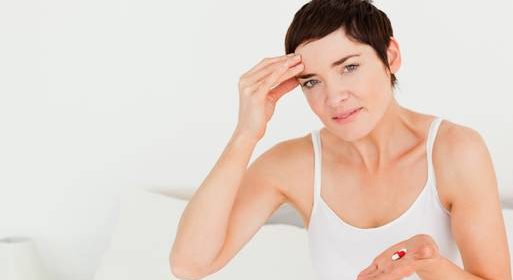Dear Dr Nina: Is HRT safe to take after IVF?

Q I had four cycles of IVF and was delighted to have a son at the end of it. I am now entering menopause and am considering taking HRT, but I am worried that the risks of developing breast cancer will be higher for me, as I have had so much fertility treatment.
Is this something to worry about? Is there any research on whether the risk for women who have had IVF is greater?
Dr Nina replies: Breast cancer occurs in approximately one in 12 women at some stage in their life. Having very dense breasts slightly increases the risk. It can also make mammograms more difficult to assess. A longer life exposure to hormone cycles increases the risk, thus those who had their first menstrual period before the age of 12 or those who have a late menopause are at an increased risk. This increased exposure to cycles also increases the risk in those who have no children or have their first child after the age of 30.
Being on the oral contraceptive pill or taking combined HRT (hormone replacement therapy) in menopause will increase the chance of developing breast cancer. The risk is higher on HRT than on the pill.
There has been much made of the recent headlines about HRT and cancer risk. We have always known about this association. The recent study helped clarify the numbers. The risk on HRT seems to be highest for HRT that provides regular, continuous oestrogen and progesterone.
There might be 20 extra cases of breast cancer for every 1,000 women who take it. This drops to 14 cases per 1,000 women for cyclical HRT that has a withdrawal bleed, and five extra cases for oestrogen alone. Oestrogen alone is only suitable for women who have had their womb removed.
There have been several studies that look at the risk of breast cancer post IVF (in vitro fertilisation). A large British study, published in 2018, showed there was no increased risk of invasive breast cancer in women post IVF. There was a slightly increased risk of carcinoma in situ (a milder cancer) in women post IVF. This caused in the order of one extra cancer for every 50,000 women treated. This is a very small risk. A Danish study looking at approximately 60,000 women, published earlier this year, did show a slightly increased risk of breast cancer in women who had IVF. The risk was 14pc higher in women who had IVF under 40, rising to 31pc in women who were over 40 when they started fertility treatment. The overall numbers were, however, very low.
Poor lifestyle choices conclusively increase the risk of breast cancer. Being obese, especially after menopause, is associated with an increased risk. This is strongest in those who gained their weight as an adult. There is a strong link between alcohol intake and the risk of breast cancer. Drinking one unit a day can increase your risk by 9pc, whereas regularly drinking more than two units daily increases the risk by 41pc. The increased risk of breast cancer due to obesity and alcohol is higher than the risk associated with HRT. The risk between smoking and breast cancer has always been suggested.
Exercising as little as 1.5 to two hours weekly can reduce your risk by 18pc. Breastfeeding (especially for over a year) also reduces the risk.
We all worry about the risk of cancer. The most important thing is to lead a healthy lifestyle, modify the risks you can, do regular self-exams and attend for age-appropriate screening.
⬤ If you have any queries, email [email protected]
Source: Read Full Article